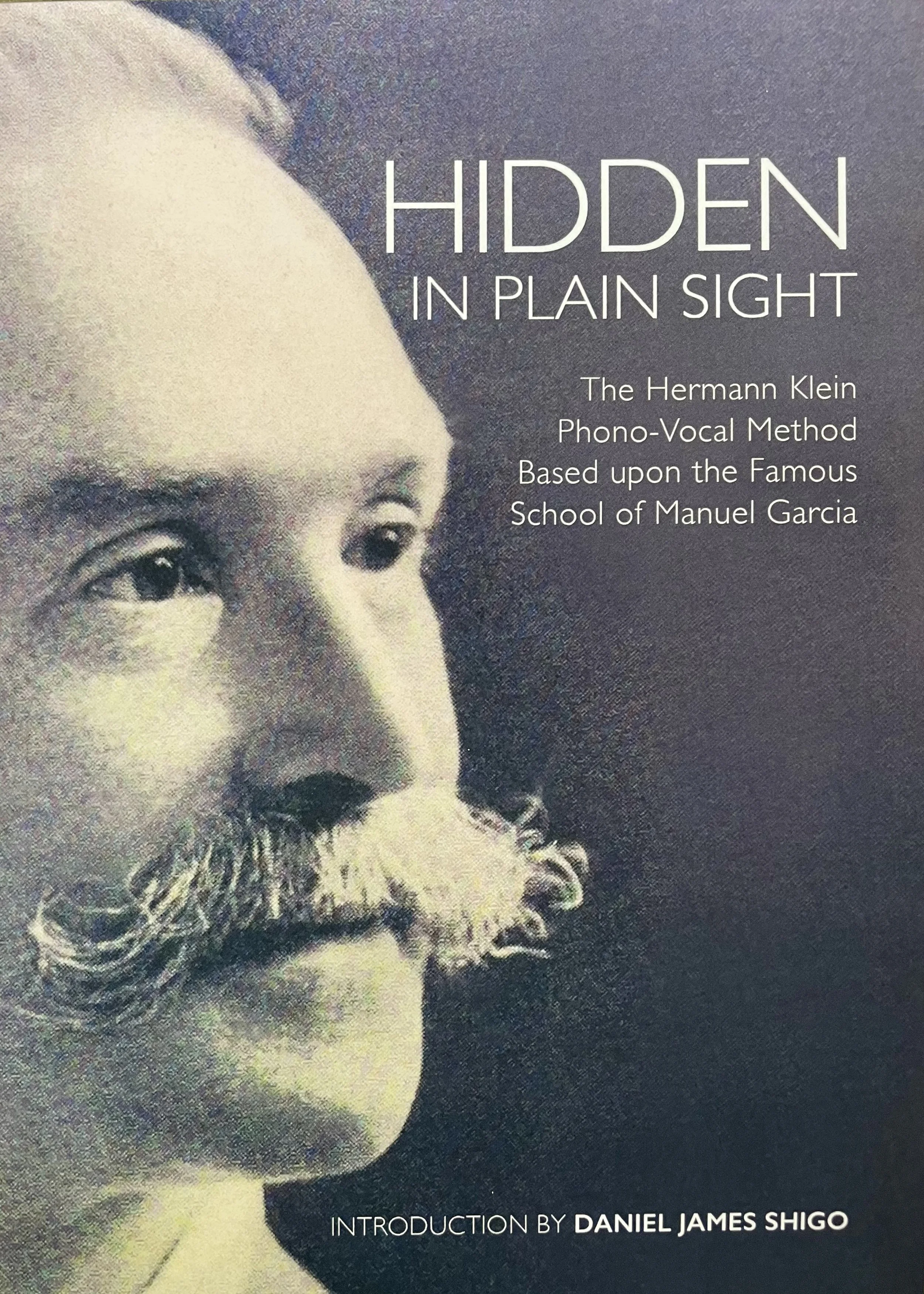
AUTHOR
Hidden in Plain Sight: The Hermann Klein Phono-Vocal Method Based upon the Famous School of Manuel García
Introduction by Daniel James Shigo
HERMANN KLEIN, a prolific writer, Londoner, and light tenor, was a student of legendary voice teacher MANUEL GARCÍA and brought his master’s method to New York City in 1901.
By 1906, Klein had become the first chairman of the newly formed National Association of Teachers of Singing,* which sought to institute standards and certification for singing teachers. With these goals in mind, Klein wrote a remarkable 84-page singing manual for each voice type using the new gramophone technology in 1909.
*The National Association of Teachers of Singing changed its name to the New York Singing Teachers Association in 1917; the current organization with the NATS moniker was formed in 1944.
Click the image to purchase.
“What is said in these pages takes the place of what should proceed from the mouth of the teacher.”
— HERMANN KLEIN, NEW YORK CITY, 1909

Lost teachings of the father of voice science
In a well-documented introduction, DANIEL SHIGO recounts how Klein's manual was found after being lost for over a century, discusses its importance for modern students and teachers of singing, and addresses the controversial subject of Manuel Garcia and voice placement.
This publication is a facsimile of the tenor voice edition. Please note that it does not contain the tenor recordings that have eluded capture after a decade of searching. However, publishing Klein's historic manual did bring to light a complete set of twenty rare contralto recordings. The vocalist is Janet Spencer, a student of Hermann Klein who accompanies. These historical recordings are unusual since no recordings have survived other than three soprano discs at Yale University. We owe their existence to the generosity of John Wolfson, a record collector and patron of the arts in New York City.
The Janet Spencer recordings can be found on Soundcloud and YouTube.
Mon Abri, Cricklewood, London July, 1901
Dear Mr. Klein, I hear that you are going to live in America and to establish yourself there as a teacher of singing.
At a time when the art of singing is in a condition of decadence, I am glad to be able to express my confidence in your ability to carry on these traditions which I imparted to you during a period of four years.
It is gratifying to me to know that the great American people appreciate the sound theories of the old school, and they will assuredly find in you one among its few capable exponents. Wishing you every success, believe me. Yours very sincerely,
M. Garcia

